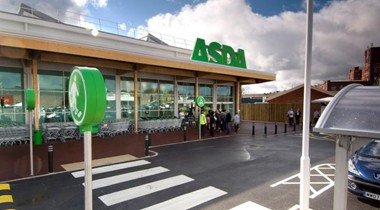The Leader of the Opposition and of the Oldham Liberal Democrat Group, Councillor Howard Sykes MBE, has written to the Leader of the Council, Councillor Jean Stretton, requesting an update be brought to the next Council (Wednesday 8 November) for the consideration of Councillors.
Councillor Sykes explained: “I first wrote to the Council Leader at the time of the referendum requesting an impact assessment and this was kindly circulated to elected members. A further report then followed in December 2016, but this was almost twelve months ago and a lot of water has gone under the Brexit Bridge since then so an update is now in my view urgently needed.”
Councillor Sykes is particularly concerned to see what the impact of the United Kingdom leaving the European Union without an agreed ‘deal’ might mean for the citizens and economy of Oldham.
He added: “Although this initially seemed an unlikely outcome, recent statements by senior Conservative Government ministers and the slow progress of talks have made me more fearful that not only may this happen, but that it is increasingly likely.”
Councillor Sykes has specifically asked the Council Leader for information about the likely impact of Brexit on:
- Oldham’s social care workforce
- The loss of the structural investment funding that was previously secured for the Borough from the European Union; this is estimated to be £8.4 billion per annum across the whole of the United Kingdom
- The loss of a formal means of consulting local government which is currently made available by the EU through the Committee of the Regions
He explained: “A significant number of social care workers within the UK have come to our country from other European countries to carry out this necessary and demanding role. The vast majority of these employees work diligently, patiently and sensitively to ensure that the needs of our elderly and disabled residents are met.”
“My worry is that such workers will perceive the UK as becoming a less inclusive and more hostile environment as Brexit approaches, with requirements for them to register with the authorities to continue to work and – I regret – reports of abuse and on occasion assaults being carried out on EU citizens in increasing numbers.”
“In such an environment, I, for one, would not blame them for wishing to return home but this would result in a situation where there may be insufficient British citizens to fill these vacancies. How then can we ensure that the needs of our most vulnerable people continue to be met?”
“I have asked the Council Leader to advise me how many of the employees in Oldham’s social care workforce are from EU nations, so that we can begin to plan to meet any recruitment shortfalls.”
Councillor Sykes is also concerned about the loss of EU grants to a deprived Borough like Oldham.
He said: “Although, in the referendum, there was a lot of talk about how much EU membership was supposedly costing the United Kingdom taxpayer, there was little discussion about how much was returned to the UK by the European Union in grants. Approximately £8.4 billion per annum came back to this country as structural funding; much of it to the more economically and socially deprived areas, of which Oldham is unfortunately one.”
“I have asked the Leader to identify how much Oldham will lose in structural development funds after Brexit takes effect. We have a lot of regeneration projects going on in our Borough, and my concern is that some of these may not be able to be delivered without EU funding.”
The third area of concern that Councillor Sykes has is the loss of influence that local government will have in government decision making after Brexit.
“At present, local government is formally consulted by the European Union on its proposals via a formal mechanism, the Committee of the Regions. There currently appear to be no proposals by the UK government to replace these arrangements after Brexit. I have asked the Leader and Chief Executive if they were join me in lobbying UK government to agree to replace these consultation arrangements after Brexit takes place. As Leader of the Liberal Democrat Group on the Local Government Association I am also myself able to put pressure to bear on Ministers in the corridors of power.”
The text of the email from Councillor Sykes to Councillor Stretton
From: Howard Sykes
Sent: 26 October 2017 17:19
To: Cllr J Stretton
Cc: Carolyn Wilkins; Paul.Entwistle@oldham.gov.uk; (A) Kay Gibson (kay.gibson@oldham.gov.uk)
Subject: Re-evaluating the Impact of Brexit on Oldham Council and our Economy
Did mean to raise this at group leaders early this week.
Dear Jean,
Re-evaluating the Impact of Brexit on Oldham Council and our Economy
In advance of Council, I wanted to write to you to request an update in the next Green Book (or at the latest for the December meeting) on the likely impact of Brexit.
Our last update was in December last year, and I would particularly like to receive an update of the impact on our economy of the worst-case scenario – where the United Kingdom exits the European Union without an agreed deal.
Although this initially seemed an unlikely outcome, recent statements by senior Conservative Government ministers and the slow progress of talks have made me more fearful that not only may this happen, but that it is increasingly likely.
I am particularly concerned about the impact of Brexit on local government in three regards:
– The impact on our social care workforce
– The loss of £8.4 billion in structural investment funding
– The loss of a formal means of consulting local government which is currently made available by the EU through the Committee of the Regions
So I would like to raise three specific questions with you that relate to these:
– What percentage of the social care workforce in Oldham are EU citizens?
– How much structural impact funding will be lost to Oldham and what will be the impact?
– Assuming Brexit happens, will you and the Chief Executive join me in lobbying government to ensure that post-Brexit, the government will give local councils a formal consultative role? I will of course also do my best through the Local Government Association to pursue this agenda.
Many thanks for your attention to these matters
Best wishes.
Howard
Councillor Howard Sykes MBE, Leader of the Opposition. Leader of the Liberal Democrat Group Oldham Council. Member for Shaw Ward. Member for South Ward Shaw & Crompton Parish Council. Office: Room 343, Level 3, Civic Centre, West Street, Oldham OL1 1UL. T: 0161 770 4016 F: 0161 770 4026 E: howard.sykes@oldham.gov.uk W: http://howardsykes.mycouncillor.org.uk Twitter: @Howard_Sykes Facebook: /Councillor Howard Sykes Home: 5 Ballard Way, Shaw, Oldham OL2 8DU







